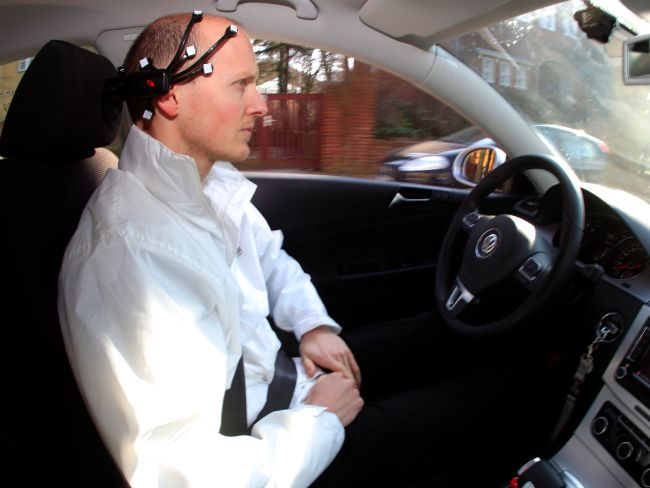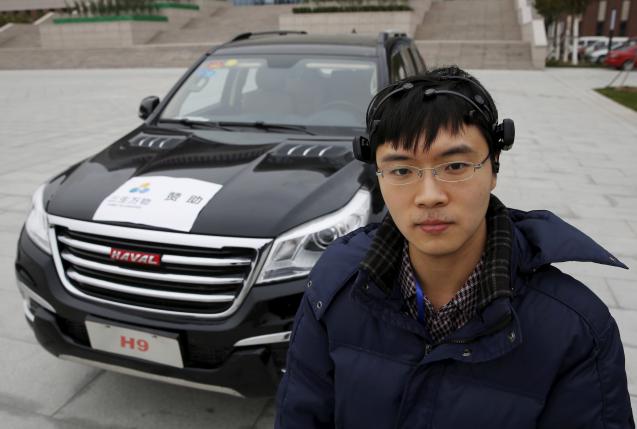Scientists in Germany have equipped a car with new technology that measures the driver’s brain waves.

The case for outlawing the practice of talking on cell phones while driving got a boost from the latest breakthrough from the innovation labs of Freie Universität Berlin. German scientists working there have installed a car with new technology that can read the driver’s brain waves, thus allowing the car to be steered entirely by thought, reports Science Daily. Needless to say, you probably don’t want to be distracted while driving this vehicle.
The technology is made possible by commercially available sensors for recording electroencephalograms (EEGs), which are basically the electrical outputs your brain produces while it thinks. Scientists then trained a computer program to distinguish the particular electrical patterns that are produced when a person thinks certain commands, such as “left,” “right,” “accelerate” or “brake.”

Of course, this training couldn’t have been done while out on the open road without being a hazard, so the scientists also created a virtual computer program more appropriate for the task. In this program, a person hooked up to the EEG sensors learned to maneauver a virtual cube around a screen using mental commands like those he or she might use when controlling a car.
Once the training was complete, it was time to take it out for a spin in the real world. Aside from being equipped with the brain-reading technology, the “Knight Rider”-esque car was also equipped with video cameras, radar and laser sensors so that it could independently interpret the simple commands given by the driver’s thoughts and apply them appropriately.

“In our test runs, a driver equipped with EEG sensors was able to control the car with no problem — there was only a slight delay between the envisaged commands and the response of the car,” said Professor Raúl Rojas, who headed the project at Freie Universität Berlin.
In other words, the technology is not quite ready for the open road, where rapid response times would be necessary to avoid perilous road conditions — but it’s an impressive first step.




Share your thoughts in the comments below...